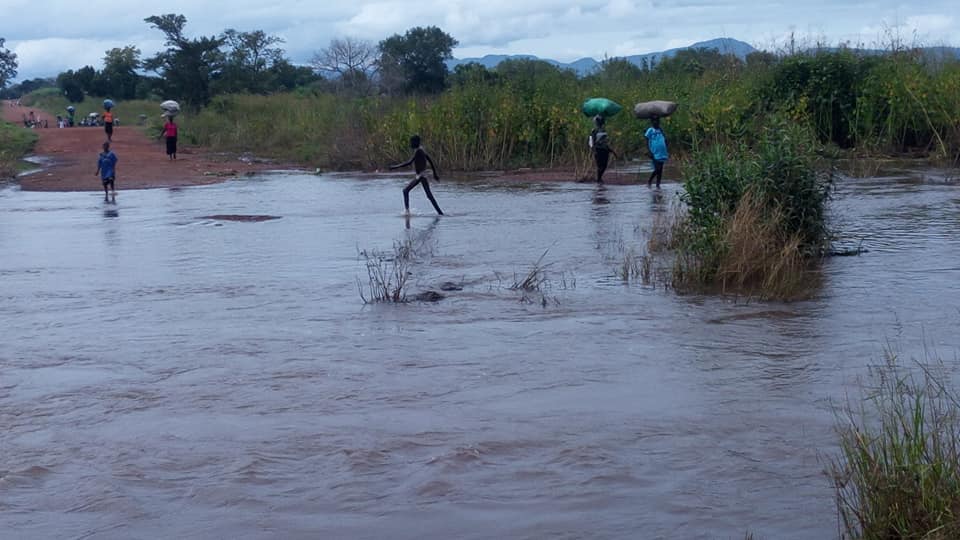Is it a blessing or a curse? This was the question asked by staff at Hope For South Sudan this past week as heavy rains led to intense flooding. The video above shows the once trickling stream—now a raging river—that separated Hope For South Sudan staff from the nearby town of Torit.
This very same raging river was what blocked access to Torit’s town hospital last week when one of our students broke his wrist while playing soccer. Joel had to wait for several days before our staff could make a safe river crossing. Unlike many others in the nation, Joel has advocates to care for him and so when a way was made he was able to receive treatment and is on the slow road to recovery.
When I last shared an update from HFSS several months ago there was a prolonged drought, fear of famine, and an uptick in trafficking because of water issues. Now, on the other side of answered prayers, a fear of crops destroyed due to flooding looms. In places of extreme poverty, like South Sudan, communities are already operating from a position of lack and so climate change compounds upon an already impossible situation for most.
Michael Mulpeter, a climate change officer, recently shared that, “In South Sudan, communities affected by conflict are experiencing floods on an annual basis; and drought regularly. Often the two occur in the same year, making livelihoods that depend on food production impossible – a situation further aggravated by conflict….The impacts of climate change are expected to make the poor poorer and increase the total number of people living in poverty.“
Is it a blessing or a curse? Maybe.
It does seem to be a very big opportunity to respond creatively to the growing global needs and growing local needs of our family in South Sudan and Sudan. It’s an opportunity to deepen partnerships and critically evaluate and take steps toward responding to the unique challenges before us all.
I recently read a quote from Pope Francis on responding to new challenges, “‘If everything continues as it was, if we spend our days content that ‘this is the way things have always been done’, then the gift vanishes, smothered by the ashes of fear and concern for defending the status quo.’”
In challenges and in transitions we can miss the gift if we hold on doggedly to what was and how things used to be. In our ever changing world and climate, an agile responsiveness to “what is” and an ever openness to “what could be” is needed most of all. Plus a generous measure of bold trust that God is there with each of us in the flood and the famine; holding life together and helping us find what matters most right now—if we have eyes to see. So we fix our eyes not on what is seen, but on what is unseen, since what is seen is temporary, but what is unseen is eternal.
The extremes that we can see point to the desperately tough realities the vulnerable face in Sudan and South Sudan. The unseen gift is an eternal overture of love and grace that continues to invite you, me, and the South Sudanese to meet God where God is already at work and support, advocate for, and advance indigenous and global movements of transformation. It’s our privilege to serve in the hardest places and it’s why LUV shows up in droughts, in floods, and in warzones for the most vulnerable in our world today.
But, we can’t do it without you. My team and I are evaluating and getting advice from experts to creatively address how climate change is already affecting our programs—from food delivery, to farming setbacks, to medical support, to increases in human trafficking… However, the overall success of our mission is dependent on the generosity of our global partners. Join us today in advancing the mission of LUV and lifting up the vulnerable in Sudan and South Sudan. You are needed more than ever!
